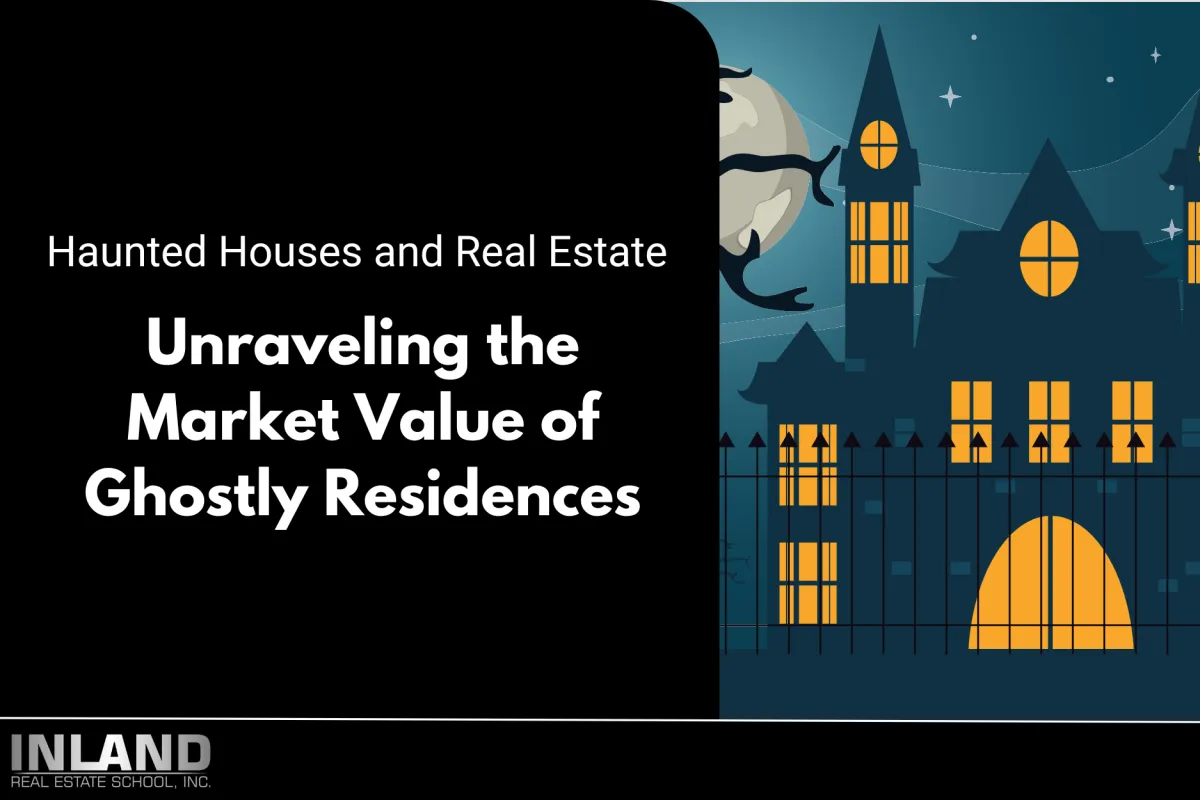
Haunted Houses and Real Estate: Unraveling the Market Value of Ghostly Residences
Haunted Houses: The Market Value of Homes with Ghostly Residents
Introduction
In the vast and varied world of real estate, there exists a niche that has long intrigued buyers, sellers, and casual observers alike: haunted houses. These properties, steeped in tales of ghostly apparitions and unexplained phenomena, have become cultural icons. But beyond the spine-tingling tales and midnight ghost tours, a pressing question remains: How does a haunted reputation influence a property's market value?
Historical Perspective
From the cobbled streets of ancient Europe to the sprawling estates of America, properties with haunted reputations have always held a morbid fascination. Historically, tales of haunted homes were whispered warnings, cautionary tales of places to avoid. The Tower of London, for instance, with its rich history of royal intrigue and execution, has long been rumored to house the spirits of Anne Boleyn and other ill-fated souls. Such properties, with their dark pasts, often became landmarks, drawing the curious and the brave.

Market Value Analysis
The financial implications of a haunted reputation in real estate can be as elusive as the spirits themselves. Some properties see a surge in value due to their infamous status. They become tourist attractions, drawing crowds eager for a brush with the supernatural. Others, however, languish on the market, their eerie histories deterring potential buyers.
Zillow, a leading real estate marketplace, has occasionally featured homes with haunted reputations. Their data suggests that while some haunted homes sell at a premium, others can remain on the market for extended periods, often requiring price cuts.

Case Studies
Consider the LaLaurie Mansion in New Orleans. Once the home of the notorious Madame LaLaurie, known for her brutal treatment of slaves, the mansion is said to be haunted by the spirits of her victims. Despite its dark history, the property remains one of the most valuable in the French Quarter.
Conversely, the Amityville house in New York, the site of a gruesome family murder and the inspiration for a series of horror films, has often sold for less than comparable properties in the area. Its last sale in 2016 was notably below the market average, suggesting that its notoriety might be more of a curse than a blessing.

The Buyer's Perspective
For some, the idea of living in a haunted house is thrilling. In a 2017 Realtor.com survey, about one-third of respondents said they'd be willing to buy a haunted house, but many of them expected a discount due to its haunted status.

Legal Considerations
The legal landscape surrounding haunted houses is as murky as the tales that surround them. In some states, sellers are obligated to disclose if a property is believed to be haunted, especially if it might influence the buyer's decision. The famous case of Stambovsky v. Ackley in New York ruled that a seller must disclose the home's haunted reputation, as it could materially affect the value.

Conclusion
Haunted houses, with their intricate blend of history, mystery, and the supernatural, occupy a unique and often unpredictable niche in the real estate market. Their value is as much about the stories they hold as the bricks and mortar they're made of. For those brave enough to invest, a haunted house offers more than just a home—it offers a legacy.
Following our exploration into the intriguing world of haunted houses and their impact on real estate values, you might be inspired to delve deeper into the real estate industry. If so, allow us to introduce you to Inland Real Estate School. As a fully licensed Real Estate School in Illinois, we boast a proud legacy, having served over 12,000 students through our 25 diverse programs.
Our flexible learning modes cater to every preference: whether you're inclined towards on-ground classes, which are available live in person or as live webinars, or you're more comfortable with home-study or online, computer-based reading sessions. Our courses are tailored for individuals eager to embark on careers as real estate brokers, managing brokers, or those seeking post-license and continuing education both in Illinois and nationwide.
But our offerings don't stop at state boundaries. Through our partnerships, we provide education for mortgage brokers and appraisers across the nation. And if you're considering expanding your reach, our affiliations with various institutes can assist you in obtaining licenses in multiple states.
At Inland Real Estate School, our commitment isn't just about imparting knowledge; it's about investing in our students' futures. Whether you're a budding real estate broker carving out your niche or a seasoned expert aiming to refine your skills, we pledge to invest 110% in your growth and success.